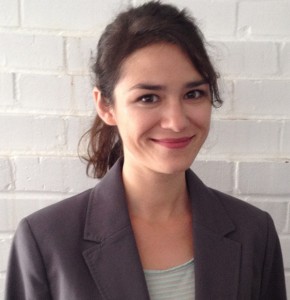
Californians may have to find a better way to get over their exes after Mills College transfer student Alysa Cisneros and Santa Clara law student Sam Karimzadeh finish their project: starting their organization, California Protect Against Digital Violence (CAPDV).
Digital violence is the public dissemination of private data, usually of a sexual nature; examples of digital violence would be revenge porn and up-skirt photos.
“It’s [digital violence] commonly known as ‘revenge porn,’ but we do not feel that […] term really captures what the action of sharing that kind of private data means,” Cisneros said.
The future of CAPDV will help lawyers bring cases to the court in order to create new legal standards for digital violence cases. The decisions in these cases will be framed to provide the much needed language to describe digital violence in the courtroom and build a case for its prohibition.
CAPDV is compiling legal and community resources to address the intersection of domestic violence, internet privacy and consent. Survivors and their allies will be able to use these resources to advocate for their case in the courts and in policy. Cisneros believes that “this work will change the cultural norms of victim blaming, the invisibility of digital violence and the lack of accountability for those who perpetuate it.”
Over time, CAPDV hopes it will be easier for survivors to get help when they need it most.
Cisneros knows many people who have been personally affected by digital violence. In terms of lawsuits, digital violence is not seen in the court room often. Because of this, Cisneros and Karimzadeh both believe that starting this organization is very important.
“I started this organization with Alysa because someone had to do something, and no one seems to be doing enough,” Karimzadeh said. “The problem of digital violence is one that [has] appeared with […] great frequency in the last few years — basically, when smartphones became more profligate and began having rear-facing cameras.”
Cisneros and Karimzadeh are currently doing a lot of preparation work for this organization. For example, they are filing as a nonprofit, rerouting industry experts into their board of directors and finalizing a legal strategy. They are also in the process of making connections with other people and organizations in order to form the Coalition Against Digital Violence, which will bring everyone from law enforcement [and] judges to survivors together to talk about digital violence. Cisneros says that bringing people together is “a major step in this process and into the indefinite future.”
As Legal Director, Karimzadeh forms the organization’s legal strategy and oversees litigation. This includes creating and managing a legal team, selecting plaintiffs and overseeing the prosecution of suits.
“If we are successful, we hope to have driven this problem in California into virtual extinction by 2025,” Karimzadeh said.
Professor Edith Kinney, visiting social sciences professor at Mills College, is a member of the advisory board for CAPDV. Cisneros believes that Kinney has been a vital member of the team and will be a great help when presenting the issue of digital violence to the social justice community.
“Kinney is very supportive of our work and provides valuable insight,” Cisneros said. “I chose Professor Kinney to be on our advisory board because I have taken classes with her and respect her knowledge on a great deal of socio-legal principles, so I knew that her input would be invaluable to us.”
Kinney believes that digital violence is an emerging socio-legal challenge, revealing the tension between freedom of speech, privacy and efforts to address new forms of sexualized violence. When Cisneros asked her to be part of the advisory board, she immediately said yes.
“I’m interested in helping provide context to develop a workable strategy to balance these competing interests and developing access to legal remedies for those who have experienced digital violence or harassment online,” Kinney said.
Cisneros feels grateful to be at Mills during this time of preparation for CAPDV and has high hopes of students getting involved in this organization.
“Mills is a wonderful place to be while starting something like CAPDV. The values of this institution and our values are very much in line,” Cisneros said. “I hope that people at Mills who are interested in CAPDV’s message will contact me, either to get involved as an intern or to let me know that you’re interested in updates.”
The future of CAPDV will focus heavily on creating case laws specifically for digital violence, and working with advocates and policymakers to create effective regulation to protect privacy and promote consent online.
“I want to make it easier for survivors to mobilize the law and their communities around this issue and be a catalyst in shifting cultural norms in favor of improved standards of consent,” Cisneros said.
Cisneros is still in the process of developing this organization. If anyone in the Mills community would like to speak to her about receiving legal help regarding digital violence or inquire about internships, contact her at acisneros@mills.edu.

